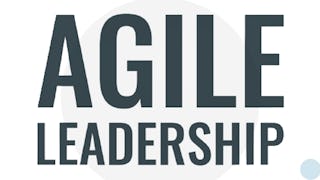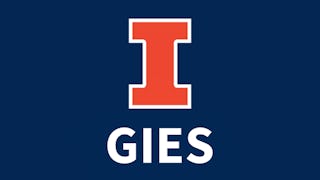Filter by
SubjectRequired
LanguageRequired
The language used throughout the course, in both instruction and assessments.
Learning ProductRequired
LevelRequired
DurationRequired
SkillsRequired
SubtitlesRequired
EducatorRequired
Explore the Process Mining Course Catalog
 Status: Free Trial
Status: Free TrialArizona State University
Skills you'll gain: Business Ethics, Sales Presentations, Meeting Facilitation, Graphic Design, English Language, Brainstorming, Negotiation, Purchasing, Verbal Communication Skills, Business Writing, Presentations, Product Planning, Telephone Skills, Communication, Marketing Materials, Business Communication, Business Planning, Employee Coaching, Financial Analysis, New Product Development
 Status: Free Trial
Status: Free TrialUniversity of Colorado System
Skills you'll gain: Change Management, Organizational Change, Agile Methodology, Meeting Facilitation, Positivity, Team Building, Resilience, Business Transformation, Team Management, Sprint Retrospectives, Innovation, Sprint Planning, Culture Transformation, Adaptability, Organizational Development, Agile Project Management, Virtual Teams, Team Leadership, Leadership, Leadership Development
 Status: Free Trial
Status: Free TrialAutomatic Data Processing, Inc. (ADP)
Skills you'll gain: Payroll, Payroll Processing, Payroll Systems, Payroll Administration, Payroll Tax, Payroll Reporting, Compensation Strategy, Tax Management, Data Entry, Employee Onboarding, Labor Compliance, Labor Law, Human Resource Strategy, Compensation Management, Compensation and Benefits, Non-Profit Accounting, Tax Compliance, Human Resources, Benefits Administration, Specialized Accounting
 Status: Free Trial
Status: Free TrialUniversity of Colorado Boulder
Skills you'll gain: Theoretical Computer Science, Algorithms, Data Structures, Graph Theory, Operations Research, Public Key Cryptography Standards (PKCS), Computational Thinking, Computer Programming, Computational Logic, Cryptography, Computer Science, Pseudocode, Programming Principles, Applied Mathematics, Advanced Mathematics, Mathematical Theory & Analysis, Tree Maps, Encryption, Network Model, Linear Algebra
 Status: Free Trial
Status: Free TrialUniversity of Colorado Boulder
Skills you'll gain: Public Speaking, Presentations, Verbal Communication Skills, Storytelling, Drive Engagement, Communication, Persuasive Communication, Non-Verbal Communication, Cognitive flexibility, Composure, Adaptability, Creativity
 Status: Free Trial
Status: Free TrialUniversity of Illinois Urbana-Champaign
Skills you'll gain: Data Storytelling, Marketing Analytics, Data Presentation, Data Visualization, Extract, Transform, Load, Business Analytics, Data Collection, Data Quality, Exploratory Data Analysis, Data Visualization Software, Regression Analysis, Network Analysis, Internal Controls, Business Intelligence, Analytics, Data Processing, Data-Driven Decision-Making, R Programming, Robotic Process Automation, Data Literacy

Stanford University
Skills you'll gain: Logical Reasoning, Computational Logic, Deductive Reasoning, Computational Thinking, Business Logic, Functional Design, Programming Principles
 Status: Free Trial
Status: Free TrialUniversity of Pennsylvania
Skills you'll gain: Risk Modeling, Probability Distribution, Mathematical Modeling, Statistical Modeling, Risk Management, Data Visualization, Predictive Modeling, Data Modeling, Probability & Statistics, Risk Analysis, Simulation and Simulation Software, Forecasting, Data-Driven Decision-Making, Business Analysis, Process Optimization, Microsoft Excel
 Status: Free Trial
Status: Free TrialMichigan State University
Skills you'll gain: Financial Statements, Intellectual Property, Value Propositions, Financial Statement Analysis, Business Planning, Design Thinking, Ideation, Innovation, Income Statement, Entrepreneurship, Customer Acquisition Management, Business Modeling, Product Development, Balance Sheet, Market Opportunities, New Product Development, Creative Thinking, Lean Methodologies, Open Mindset, Resource Management

University of Virginia
Skills you'll gain: Management Accounting, Cost Accounting, Accounting, Cost Benefit Analysis, Cost Management, Financial Accounting, Financial Data, Financial Analysis, Decision Making, Data Visualization
 Status: Free Trial
Status: Free TrialSkillUp EdTech
Skills you'll gain: New Product Development, Product Management, Product Development, Innovation, Product Lifecycle Management, Product Roadmaps, Product Planning, Product Strategy, Project Management Life Cycle, Stakeholder Engagement, Stakeholder Management, Competitive Analysis, Product Testing, Business Development, Agile Product Development, Product Requirements, Commercialization, Business Planning, Test Planning, Registration
 Status: Free Trial
Status: Free TrialIE Business School
Skills you'll gain: Survey Creation, Surveys, Market Research, Business Research, Consumer Behaviour, Marketing Strategies, Research Design, Data Analysis, Research Reports, Market Analysis, Research Methodologies, Experimentation, Customer Analysis, Focus Group, Business Marketing, Decision Making
Process Mining learners also search
In summary, here are 10 of our most popular process mining courses
- Inglés Empresarial: Arizona State University
- Agile Leadership: University of Colorado System
- ADP Entry-Level Payroll Specialist: Automatic Data Processing, Inc. (ADP)
- Foundations of Data Structures and Algorithms: University of Colorado Boulder
- Successful Presentation: University of Colorado Boulder
- Business Analytics: University of Illinois Urbana-Champaign
- Introduction to Logic: Stanford University
- Modeling Risk and Realities: University of Pennsylvania
- How to Start Your Own Business: Michigan State University
- Managerial Accounting Fundamentals: University of Virginia










